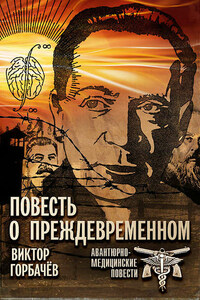CHAPTER I – IN THE BIG CITY
The long Pullman train, that left Denver behind and carried Polly Brewster away on her first venture from the ranch-home, was fitted up as luxuriously as capital could do it. Eleanor Maynard, Polly’s bosom friend, enjoyed her companion’s awe and wonderment – that a mere car should be so furnished.
“Nolla,” whispered Polly, furtively glancing about, “how different are these cars from the ones that come in and go out at Oak Creek!”
Eleanor, whose pet name was Nolla, laughed. “I should think they would be, Polly. Why, those ‘ancients’ that rock back and forth between Denver and Oak Creek, are the ‘only originals’ now in existence. They’ll be in Barnum’s Show next Season as curios.”
Polly seemed to fully appreciate the comfort of her traveling carriage, and remarked, “One would hardly believe these cars are going at all! They run so smoothly and without any awful screeching of the joints.”
Anne Stewart, the teacher to whose charge these two girls had been committed, had been studying the time-table, but she smiled at Polly’s words. Then she turned to her mother, a sweet-faced woman who was enjoying the trip almost as much as the young girls were, and said: “Mother, we’ll have at least seven hours in Chicago before we have to take the New York train. We can visit Paul all that time.”
“Goody! Then Poll can visit John and I can see Daddy,” exclaimed Eleanor, eagerly. “But we must first charter the wash-room to turn ourselves from dusty travelers into respectable citizens.”
“There isn’t a fleck of dust to be seen, Anne,” objected Polly, glancing around the tidy interior, then at herself and friends.
“Wait till after we have crossed the plains and passed through all kinds of towns – we won’t look like the same people.”
To Polly, that journey was a source of great interest and fun. The dining-car, the folding tables for games or work, the sleeping arrangements – all were so strangely different from the vast open-air life of the ranch.
Then the express train reached Chicago and the recess hours were filled with greetings, visits and then good-bys, before the little party of four was on its last lap of the journey.
After leaving Chicago, Eleanor asked curiously: “What did you think of our city, Polly?”
“I never saw such crowds of troubled people! Everyone looked as if the worries of the universe rested upon his mind. And not one soul walked or acted as if there was a moment to spare before the end of the world would throw everything into chaos!”
Polly’s graphic description caused her companions to laugh, and Eleanor added: “If that is what you think of Chicago, just wait until you reach New York. The folks, there, are simply wild! Now Chicago is considered quite slow, in comparison.”
Polly stared unbelievingly at Eleanor, and Anne Stewart laughed. But Mrs. Stewart placed a calm hand over the amazed girl’s throbbing wrist, and said sweetly: “Nolla is joking as usual.”
The four members which composed this little group of travelers arrived at Grand Central just before noon. Polly gazed in consternation at the vast station where the constant going and coming of trains and people made a most interesting sight for her.
“We’ll stop at the Commodore for a few days, girls, as it is so convenient for us,” remarked Anne, telling a porter to conduct them to the hotel mentioned.
Placed in a comfortable suite, Anne remarked: “I think we will call up the Evans or the Latimers, next. You remember, we were told to let them know the moment we arrived.”
The others agreed to this suggestion, so Anne telephoned the two families. Mrs. Latimer was out, but Mrs. Evans said she would come right down town to meet the new-comers.
“Well, we can unpack our bags while we are waiting for her,” suggested Anne. “But we must manage to get to a store this afternoon, and do some shopping for Polly.”
“Dear me! I was hoping you would show us all the sky-scrapers I’ve read about,” said Polly, eagerly.
“I planned to let the sight-seeing wait for a few days, as we must secure a place to live in, first of all. Here it is the middle of September, and I have to start school work the first of October, you know. In a great city like New York, the desirable apartments are generally taken as early as July and August. So we are up against it, in beginning to seek so late in the season.”
“But we can’t hunt at night, Anne, and you might take us out to show us the Great White Way – as the boys call it,” urged Eleanor.
Mrs. Evans came down in time to have luncheon with the Westerners, and in the hour she visited with them, it was learned that Mrs. Latimer and she had scoured the uptown west-side for suitable apartments for Mrs. Stewart, but everything had been leased long before. She concluded with:
“So I really do not see what you are going to do, unless you just happen to stumble over a place which has recently been resigned. There is absolutely no use in doing any place above Ninety-sixth street, as we sought diligently from that street up as far as One Hundred and Sixty-eighth street, and not a decent thing to be seen or had!”














